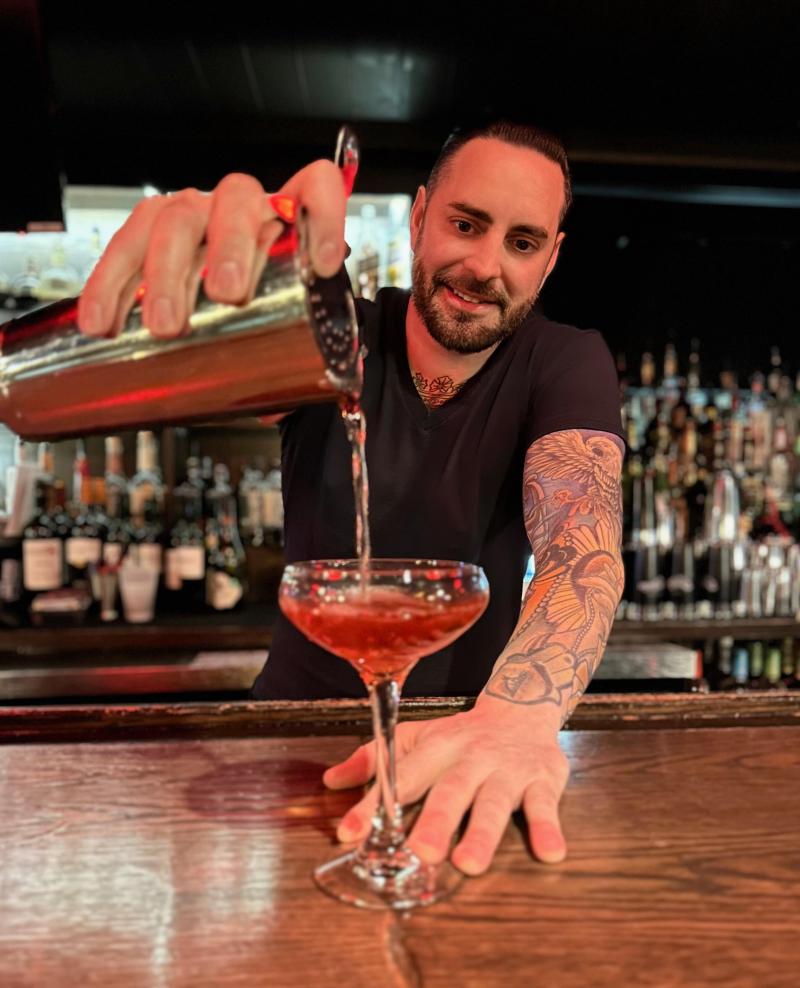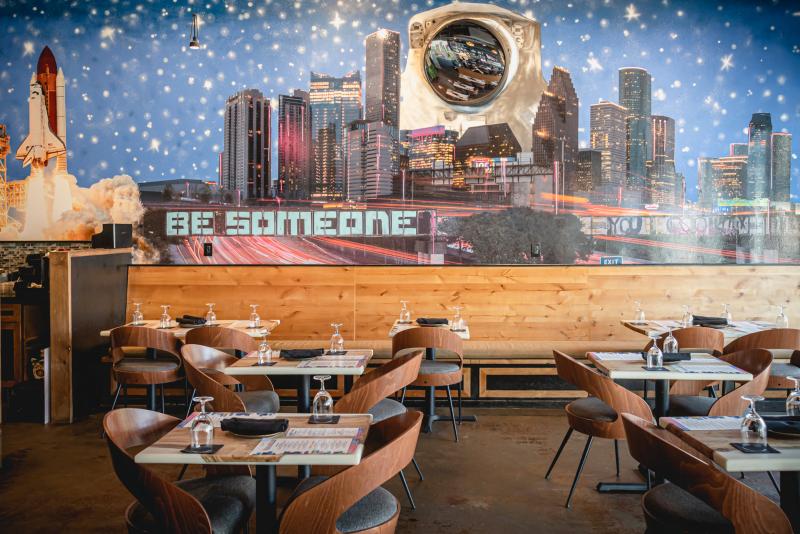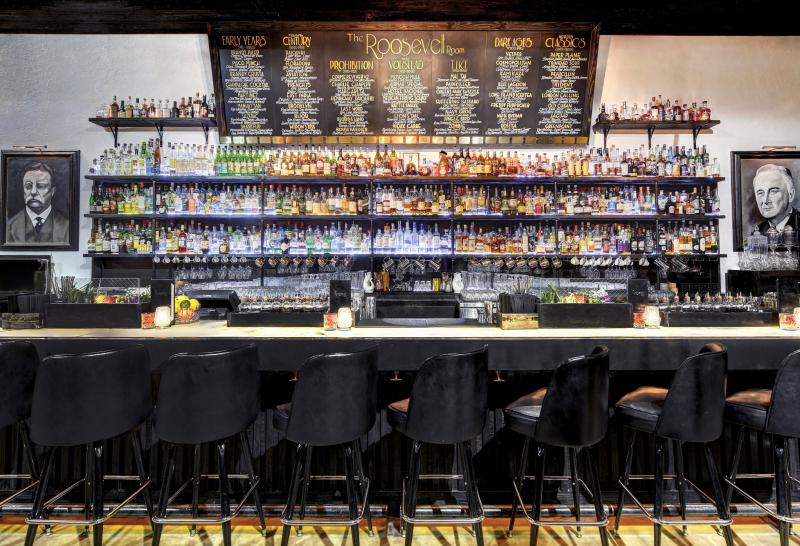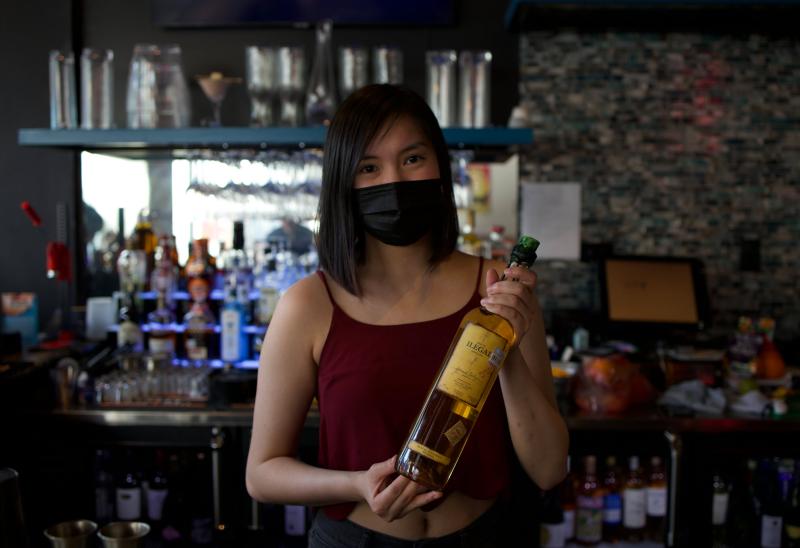When it comes to keeping patrons safe and responsible alcohol service, what insights and tips do bar operators have to share? What are their do’s and don’ts, things that shouldn’t be neglected, and areas the industry needs to focus on more? Bar & Restaurant spoke with several industry professionals to learn from their expertise.
Paul Kushner, who owned a pub in Southampton, Pa., for more than 10 years before moving on to mixology and recipe development with MyBartender, said, “Responsible service starts with training and regulatory compliance. And I don't mean compliance when someone is looking, but 100 percent compliance, 100 percent of the time. The second you start to feel like bending the rules a bit, you need to take a step back and remind yourself of the consequences.”
Sebastian Hovian, a.k.a. Bash the Bartender, who runs a private bartending business in the greater Los Angeles area and has worked in high-end establishments for a number of years, shared, “The most important thing for bar owners and operators to remember when serving alcohol is that they have a duty to ensure the safety of their patrons.”
Demi Natoli, the beverage director for Graduate Nashville’s F&B concepts – including White Limozeen, Cross-Eyed Critters Watering Hole and Poindexter Coffee in Nashville, Tenn. – said the key is paying attention and being observant about what’s happening throughout service. At the hospitality group’s venues, all managers are trained in how to de-escalate uncomfortable situations with guests, and they know how to prioritize guest safety. “Owners and managers should talk about and train all staff members about safety practices and how to spot when something inappropriate is happening,” said Natoli.

Advice on Proper Safety & Alcohol Service Training for Bar Staff
Christopher Knox, who’s worked for more than 11 years at various bars and restaurants in the Brevard County, Fla., area, has managed venues, led security protocols, and worked as a bartender. He said a lot of bars and clubs “train” their employees, but it’s more of a titular process for new workers.
“Many times I have seen, met and talked with employees that have felt as if their training was rushed and lackluster at best,” Knox explained. “The serving staff is the driving force behind you making money in your bar business, and it is an absolute necessity that you spend more time and effort on giving your team the knowledge and skills to help everyone on board succeed.”
Knox said it’s crucial that bar operators train staff to notice the signs of a patron nearing the point of cut-off, as well as giving them the tools to deal with the situation when the moment happens. “Being the patron’s friend before this happens will help you navigate these tricky waters when it finally does.”
Kushner suggested that bar owners and operators need to train employees about why alcohol regulations exist and communicate the risks of noncompliance. “While [staff] completed alcohol service certification, those certifications tend to be forgotten as the servers spend more time in the trenches,” he said. “Those courses don't prepare you for the reality of facing a hefty cash tip to bend the rules, or the potential physical danger of a belligerent patron at your workplace. This is why responsible service must be a team effort and [why you must] have a strategy in place. When faced with these scenarios in the field, your staff will know exactly which steps to take, just like emergency preparedness in a way. Knowing who to call in for backup and when to involve law enforcement are important things that can help your bartenders prioritize responsible service.”
Kushner noted that liability should be a big reason why operators properly train staff: “As a bartender, you can be liable for any injury or damages caused by a person you overserve, and your employer could also face penalties. It is a gamble that simply isn't worth the extra tips or avoiding the awkwardness of cutting a patron off from service. Pennsylvania also has peculiar liquor laws, so I've had to be extra thorough with adhering to laws and regulations, and ensuring all staff are compliant too.”
In addition to training staff, Kushner said operators should always “train” or educate patrons, too. “If you are refusing to serve someone, you can inform them why: You could lose your license and be held personally responsible if the patron is harmed or causes harm to others while drunk,” he said. “It's not even business, it's personal. Why should you risk time in jail so frat boys can enjoy another pitcher of beer and tip you 10 percent?”
Even before you get to a point where you might need to educate the customer, you should be looking for signs that there could be an issue. Knox explained that it’s about pre-assessing the situation. “Many of the patrons that will pose a problem to their own safety, or the safety of others, will actually show you signs of this being a possibility way before they actually provide that safety risk,” he said. “It becomes easier to see the telltale signs as you gain experience in the industry.”
Some of the common signs of a potentially problematic customer, according to Knox, include: entering loudly and/or having issues upon arrival; dozing off at any point; aggressive body language;and domestic issues. “If you see any of these signs, or similar ones, it is safe to say that the patron will have an increased risk of endangering themselves or others in the near future,” he said.
From a customer service perspective, ensuring your patrons are safe can sometimes mean going the extra mile with service, shared Kushner. “Silently handing over glasses of water or an order of fries on the house can slow down alcohol consumption without confrontation,” he said. “But don't be afraid to warmly offer a menu or a pitcher of water. Approach cutting off patrons with a friendly but firm demeanor and you'll have less pushback. You don't need to play ‘bad cop’ right out of the gate. A complaint I've heard from servers before is that it’s unrealistic to refuse service to someone who is already tipsy. ‘If they don't drink here, they are going to drink somewhere else!’ While this may be true and may affect the bottom line, turning away their business means turning away any liability. I think most novice bartenders underestimate the personal liability of overserving, so again, this must be emphasized at every opportunity.”

Kam Talebi, the operator of The Butcher's Tale, an artisanal steakhouse and beer garden in Minneapolis, Minn., shared that when they first opened their venue, someone was overserved and caused a scene. “Since then, the servers and bartenders have been informed that if they serve alcohol to someone that is visibly drunk, they will face heavy consequences,” he said. “It's too much of a liability, and we are not that type of place.”
Talebi said he believes that some servers and bartenders do not want to cut people off because that might lead to a scene and/or the loss of a tip. “Unfortunately, it’s part of their responsibilities, so we had to create some accountability for all of the employees to make certain that they err on the side of safety,” he said. “Every bar and restaurant should do the same. There is too much gray area regarding this practice in most establishments, and that gray area can cause some massive problems for everyone.”
Hovian (a.k.a. Bash the Bartender) offered some dos and don’ts for operators to consider, when focusing on safety.
Dos:
- Train staff to identify and handle intoxicated patrons, including cutting off service and calling a cab or ride-sharing service, if necessary.
- Have a system in place for checking IDs and preventing underage drinking.
- Provide non-alcoholic drink options and food to help slow down alcohol consumption and prevent overindulgence.
- Create a welcoming and inclusive environment where all patrons feel safe and respected.
- Ensure that the bar is well-lit and easily navigable with clear signage.
Don’ts:
- Don't over serve patrons, as this can lead to dangerous and even deadly situations.
- Don't ignore signs of intoxication or disruptive behavior, as this can put other patrons at risk.
- Don't tolerate harassment or discrimination of any kind.
If you ever need to ask a customer to leave the venue because of unruly or dangerous behavior, Knox suggested that staff should act like it’s really loud where they are and tell the customer they want to have a more personal setting for a conversation.
“Once the employee turns to walk outside, the patron will almost always follow the leader,” Knox said. “Once the patron is outside of the building, it is far easier to call it a night for them. This is due to many things, but the most important of which is the fact that they feel as if they left on their own accord. They are able to keep their public image intact and their pride is not injured. To everyone else, it simply looked as if the patron and the employee were going outside mutually. Doing this not only decreases direct issues with the patron specifically, but also lowers the overall disturbance for the other patrons at your bar or restaurant.”
Daniel Wolfe, founder of Howling Hospitality in the Houston area, which operates City Cellars HTX and Wolfe & Wine, believes that keeping patrons safe while keeping drinks flowing and the good times rolling is a difficult task, especially in crowded environments.
“At City Cellars HTX, we employ several methods that help keep a watchful eye on guest’s drinks,” Wolfe explained. “From obvious tactics – such as training our staff to place napkins over guests drinks when they use the bathroom – to less obvious design features, guest safety and enjoyment is our top priority. One of the less obvious design features is our giant mural. The astronaut helmet is actually a giant mirror that’s angled in such a way, the bartender can see every table if they look up. This also helps spot people who make less than honest decisions and bring their own alcohol into our establishment.”
Wolfe said they also have a “zero questions asked” policy on drink remakes, if a patron feels their drink was tampered with in any way. “We will simply discard the drink and provide another one at no additional charge,” said Wolfe. “As the City Cellars and Howling Hospitality brands expands, its these thoughtful touches and mindful safety features that keep our guests coming back without them even realizing we are doing it.”

When looking at the big picture, Victor Garibay – partner and general manager of Rayo Cocktail Bar and Fonico Restaurant in Mexico City’s Roma Norte area – said he always hire staff that can pass on a positive energy and share their vision with guests. “To make sure we are on the right track, we have periodic round tables to listen to not only creative ideas for improvements, but also to the staff opinions related to any issues or concerns they have within the working environment," he said. "We care for our people so that they care for our guests.”
Bar Safety: It’s Not Just About Responsible Alcohol Service
Responsible alcohol service is critical for bars and restaurants, but there are also general safety issues to consider, and things that many operators might not even think of. For example, Dennis Gobis, co-owner of The Roosevelt Room cocktail bar in Austin, Texas, realized his venue could potentially have some blind spots when it came to overall safety. To remedy the situation, his business met with Rob Chadwick of Holdfast Security Group. Chadwick is an ex-FBI agent, whose firm helps establishments prepare for threats, conflicts and acts of violence.
“We met at the bar and Rob did a full walkthrough of the space,” said Gobis. “Assessing it much like the Secret Service would before a presidential visit, Rob was able to show us the strengths and weaknesses of our building from a tactical perspective. From there, Rob was able to give us a list of valuable tools and procedures that would help in the case of an emergency."
Gobis said the following items were implemented at The Roosevelt Room because of the advice from Chadwick and the Holdfast Security Group, and the bar’s team feels safer because of it:
- All managers on staff have gone through and are up to date on first aid procedures and cardiopulmonary resuscitation (CPR) at The Roosevelt Room. “This ensures that every single day at least one person in the house can help in the case of an emergency,” Gobis explained.
- There’s an action plan for an active shooter situation, both in front of the building and within the space. “Our managers know what to do should something happen,” said Gobis.
- A protective film was installed on the glass on the front of the building, called “hurricane glass.” The film makes the windows shatterproof and can help keep the window whole in case someone tries to breach it.
- The Roosevelt Room identified “safe rooms” with Holdfast Security Group, and they installed security door braces in the restrooms. “This allows for people to seek refuge in the safe room and brace the door from the inside,” noted Gobis.
- An automated external defibrillator (AED) was added for potential cardiac arrests, as well as a much larger first aid kit and trauma kits. This includes chest seals and tourniquets. The bar also added Narcan to the first aid kit because of the increasing threat of fentanyl overdoses.
“We learned with Rob's help that the best way to keep our staff and guests safe is through preparedness,” added Gobis. “Being prepared with the tools and the knowledge to face difficult situations helps us feel safe. Little things like First Aid, CPR, and an action plan can help to save lives in a crisis situation.”
Gobis thinks the biggest “elephant in the room,” something the industry will need to be better prepared for, is the fentanyl crisis. “This epidemic affects all walks of life and we will continue to deal with this problem,” he said. “Educating ourselves, being able to identify the signs of an overdose, and knowing what to do can save lives.”

‘Every Situation Is Different Than the Last”
Overall, according to Knox, the most important thing for bar operators to remember when it comes to safety and serving alcohol is: “When you are serving alcohol, you are serving an attitude altering, sensory dulling, balance disrupting liquid. It is important to remember that there will be issues, and knowing how to handle the different types of unique situations when they arise is what will help you the most. Every situation is different than the last.”
Aaron Kiel is an editor, writer and public relations professional in Raleigh, N.C. He’s worked in the beverage, tea and coffee industries for two decades, as well as hospitality and technology. He’s a journalist at heart, but he also wears a PR and communications hat through his consultancy, ak PR Group. He’s a contributing writer/reporter for Questex’s Bar & Restaurant News, and he recently worked as the editor of World Tea News with Questex’s Bar & Restaurant Group. In 2023, he was a finalist and honorable mention in the “Folio: Eddie & Ozzie Awards” for Range of Work by a Single Author – B2B.” Connect with him on Instagram: @adventurer_explorer.

Plan to Attend the Annual Bar & Restaurant Expo
To learn about the latest trends, issues and hot topics, and to experience and taste the best products within the bar, restaurant and hospitality industry, plan to attend or participate in the annual Bar & Restaurant Expo. Visit BarandRestaurantExpo.com for details.
To book your sponsorship or exhibit space at the next Bar & Restaurant Expo, contact:
Veronica Gonnello (for companies A to G) e: [email protected] p: 212-895-8244
Tim Schultz (for companies H to Q) e: [email protected] p: 917-258-8589
Fadi Alsayegh (for companies R to Z) e: [email protected] p: 917-258-5174
Also, be sure to follow Bar & Restaurant on Facebook and Instagram for all the latest industry news and trends.
